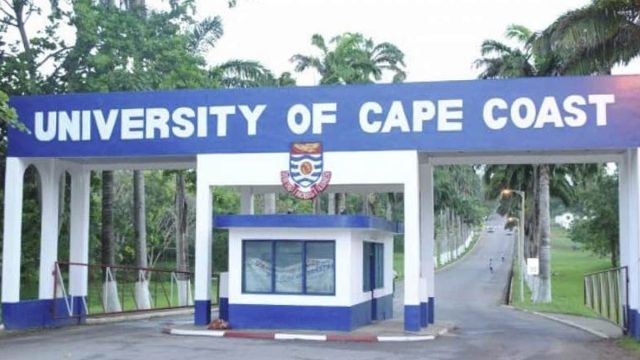The University of Cape Coast (UCC) has been adjudged the best university in Ghana and West Africa, retaining the top spot for the third consecutive time.
The 2024 Times Higher Education’s World University Rankings also placed UCC at the seventh position in Africa, making it the only institution in Ghana and West Africa in the top 10 ranked universities.
The 20th edition of the annual rankings, released on Wednesday, September 27, further ranked the UCC among the leading research-intensive universities globally.
In 2023, the school was ranked first in Ghana and West Africa, fourth in Africa among the top 400 globally, and 24th in research influence.
Although the university fell from fourth in 2023 to seventh 2024 in Africa, the general performance was on an improvement upon the previous years.
The annual Times Higher Education (THE) World University Ranking considered the most prestigious globally, received data from 2,673 institutions across 108 countries, out of which 1,904 qualified for ranking for 2024.
For this year’s grading, the Times Higher Education introduced a new methodology to balance and elevate the ranking metrics, covering teaching, research environment, research quality, international outlook, and industry or knowledge transfer.
Prof Johnson Nyarko Boampong, the Vice Chancellor of UCC, addressing a presser Wednesday evening, described the feat as unprecedented in the history of universities in Ghana.
He said the achievement was a testament of the reputation of the school’s scholarly research output, especially over the past 10 years.
“By this feat, UCC has also demonstrated its contribution to higher education and the impact of its scholarly outputs in Ghana, Africa and globally,” he said.
“This highlights the hard work and commitment of our faculty towards engaging in impactful research.”
Prof Boampong expressed the university’s resolve to forging strategic partnerships in areas of its core mandate to further its cause and maintain the achievement.
He, thus, urged all stakeholders to work assiduously to advance the school’s core mandate of teaching, research and community service.
He specifically charged faculty and staff to conduct more cutting-edge research leading to innovative output, which could be commercialised and patented for the benefit of society.
“It is also imperative that we improve in other areas where the university ranked low.”
“In particular, we will work to increase the proportion of graduate students and attract more research grants to increase the research income to make resources available for the provision of the state-of-the-art facilities for teaching and learning.”
The Vice Chancellor commended the University’s Council, Management, staff, students and all stakeholders for their contribution to the “sterling” performance.
Prof David Teye Doku, the Director of Research, Innovation and Consultancy (DRIC), explained that although the university fell from fourth in 2023 to seventh 2024 in Africa, the general performance was on an improvement upon the previous years, citing the new method.
In spite of that, he said they would work harder to take their performance even further.







![“I made Shatta Wale who he is today” – Singer Kay Smooth alleges [Video]](https://ghananewss.com/storage/2023/04/Kay-Smooth-Shatta-Wale-100x75.jpeg)

![Mr Logic’s Red Panther record label officially signs two Afro-dancehall artistes[Video]](https://ghananewss.com/storage/2023/05/Mr-Logic-signs--100x75.jpeg)





